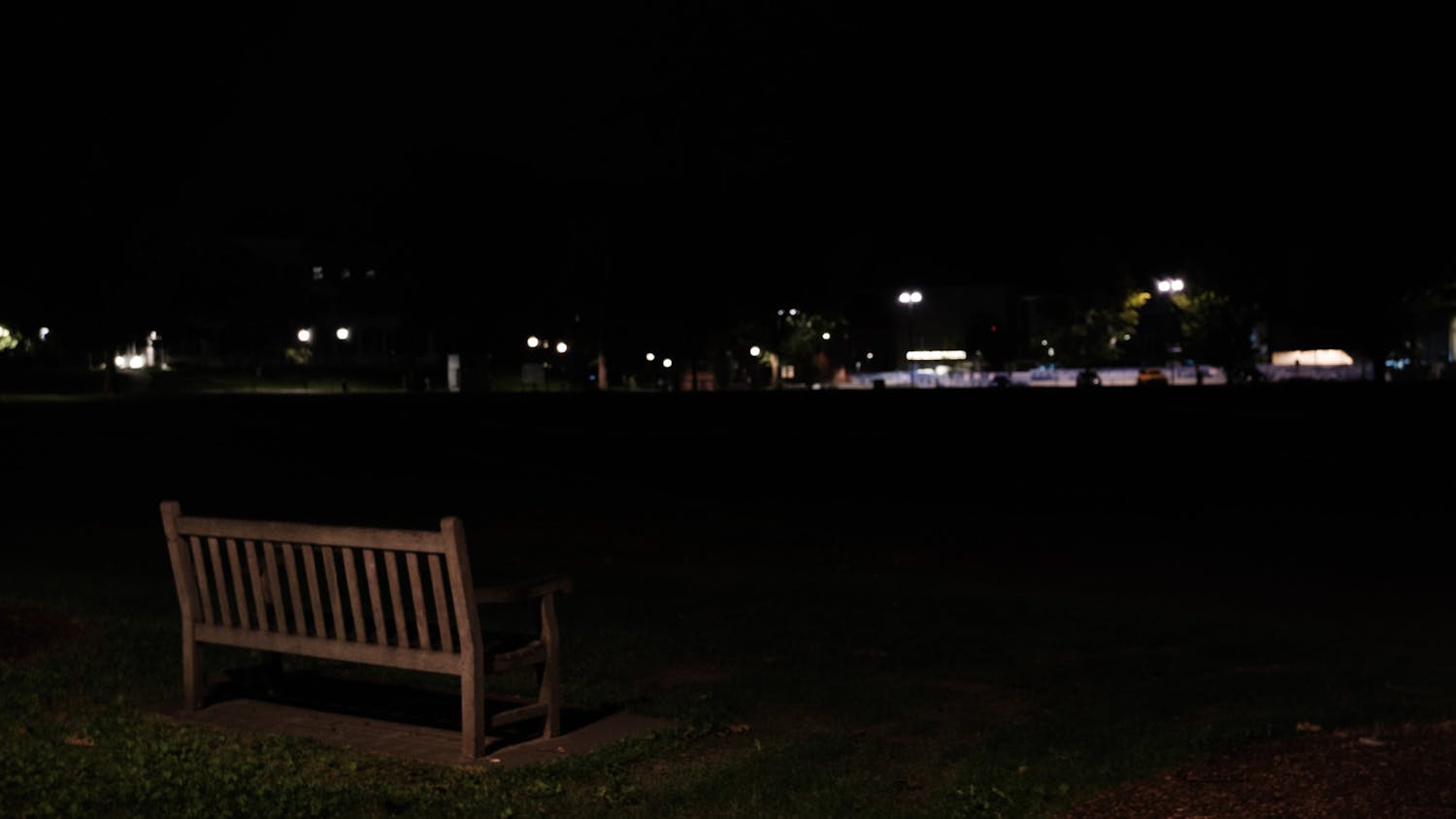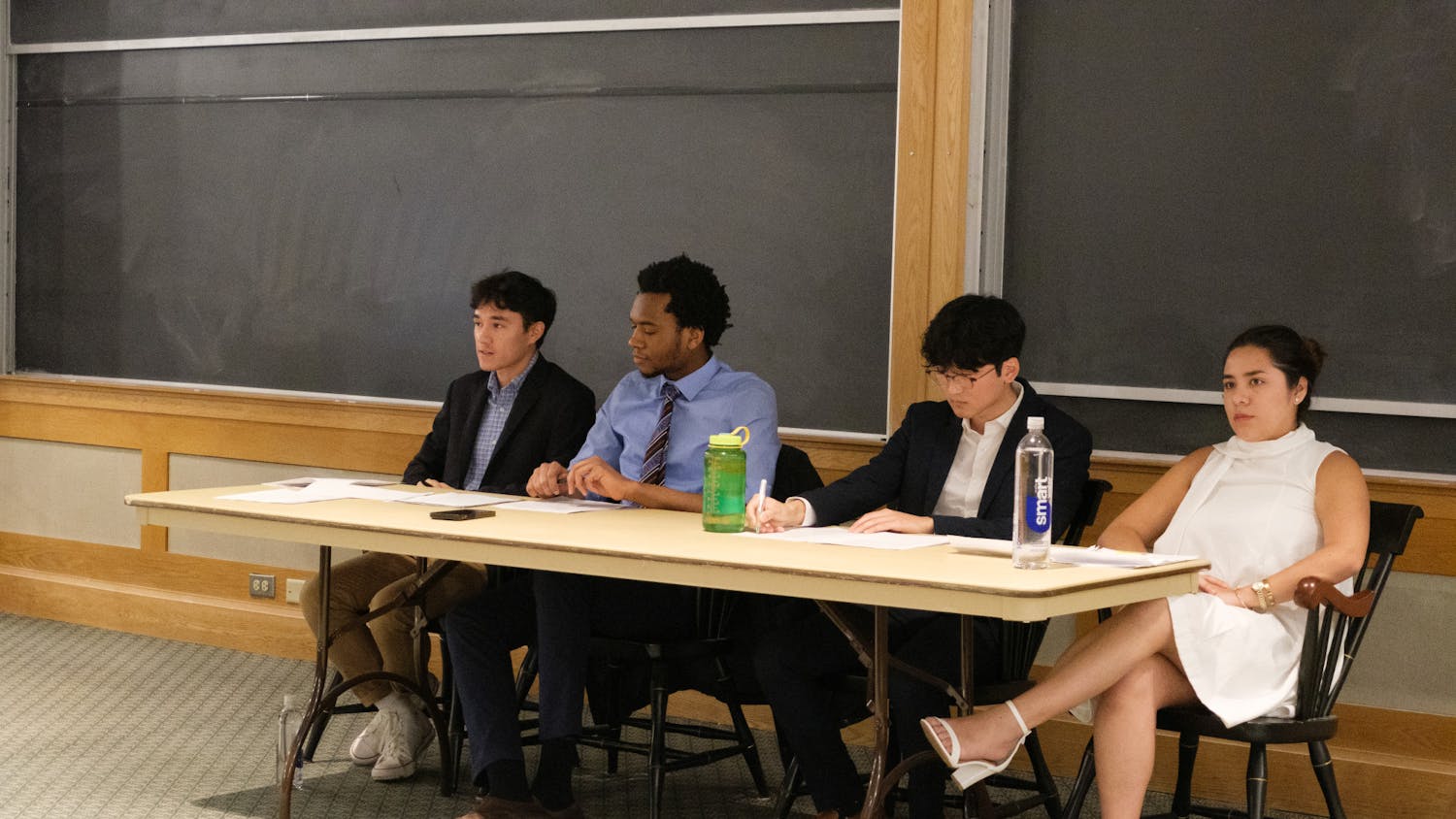Editor's note: This article is the second in a two-part series examining the use of laptop computers in classrooms.
While some professors discourage the use of laptop computers in the classroom, others think they allow students to quickly look up supplemental information during lectures. Online resources, such as the open-source encyclopedia Wikipedia, allow students with personal laptops to complete their understanding of ideas presented by a professor.
Comparative literature professor Klaud Milich, for example, said he regularly uses these online sources to supplement his classes. He said that personal computers in the classroom are certainly far from necessary (though he will not consider banning them).
"I would personally prefer that the students ask [me questions], because then you can make it a topic in class," he said. "Usually it is not just one student who doesn't know."
While Milich believes that technology is essential and allows for "part of the reality of the outside world" to enter the classroom, he believes that because most classrooms at Dartmouth are "smart classrooms," individual computers are rendered unnecessary.
Milich said that his students should use these online sources in class if something comes up as a minor concept and is not essential. Sources such as Wikipedia provide a brief provisional understanding, but students' knowledge of the topic should not be confined to what the Wikipedia says, Milich said.
"The students on laptops, they aren't very attentive," he said. "They do not contribute to class discussion as much as those who don't [use laptops]."
Milich said that his students cannot quote encyclopedias such as Wikipedia in their papers. In January, history professors at Middlebury College voted unanimously to adopt a disclaimer on syllabi to ban students from citing Wikipedia.
Psychology professor John Corson allows students to employ Wikipedia and Google Scholar for assignments, but he doesn't believe that computers are essential tolls for the classroom.
"I think that some students look up things because their vocabulary is kind of limited, but I also see them screwing around on [BlitzMail]," he said.
Corson said that he is careful with his word choice while giving lectures and defines words students might not know.
Allan Reynolds '07, a former student in Milich's class, did not feel comfortable with his professor's use of online sources.
"It was kind of disconcerting," he said. "I'm an English major, and they tell you to use a website with caution. Most professors have a nostalgia for the text over the digital, and in that class the cure-all pill ... was Wikipedia."
Joseph Kardon '09 said that while Wikipedia may not be factually accurate, its scope and easy-to-use format make it more accessible.
"It is all about being a responsible student and not letting yourself remain ignorant, " he said of using such sources.
Kardon regards himself as an avid Wikipedia user, and said he uses the website for more than just schoolwork.
"Wikipedia is an extremely helpful resource for finding out about something you don't know," he said.
Although Kardon attests to the value of online access in the classroom, he also acknowledges that some abuse this privilege.
"People who have their laptops open in a big class like that are most certainly not taking notes the entire time," he added.



